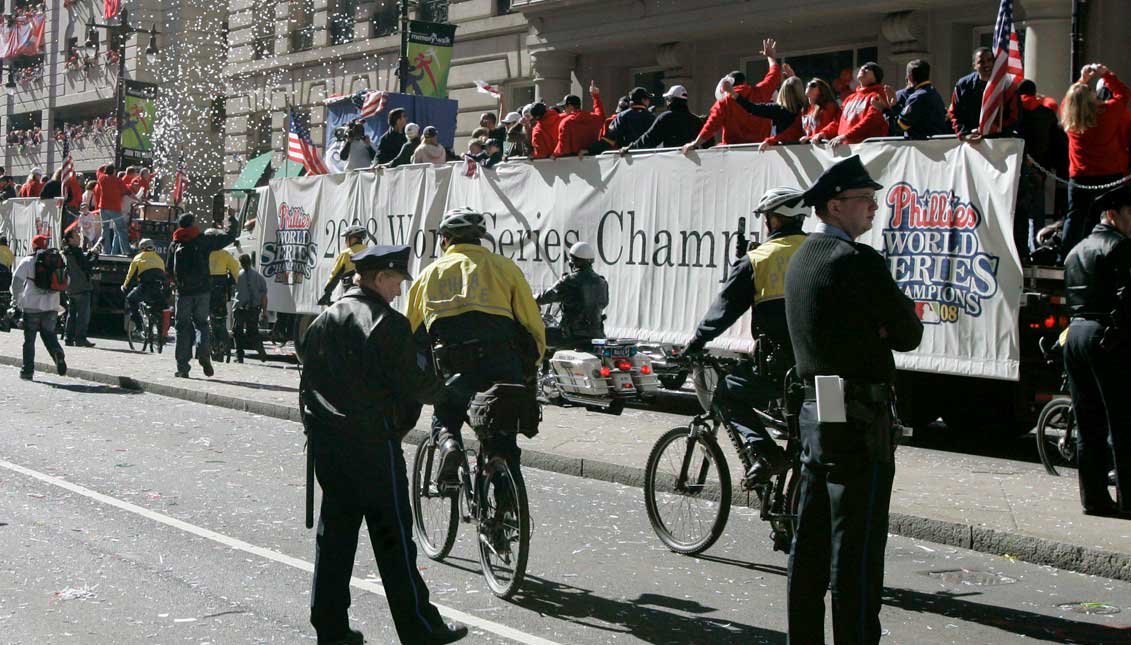
[OP-ED]: Does ‘executive function’ play a role in how likely police officers are to use deadly force?
MORE IN THIS SECTION
According to an article recently published in the journal Police Quarterly, executive function may also play a role in how likely police officers are to respond with deadly force to an altercation.
In “Quick on the Draw: Assessing the Relationship Between Low Self-Control and Officer-Involved Police Shootings,” researchers from Loyola University in Chicago, the University of Texas at Dallas and the University of South Florida analyzed administrative records -- background files, academy training records and personnel information that could represent possible predictors of negative police behavior -- from the Philadelphia Police Department.
They found that officers who had problems with their finances and their interpersonal relationships, past brushes with the law and/or lower levels of education -- situations linked to low executive functioning -- exhibited a higher likelihood of discharging their firearms. The study’s statistical regression found that a one-unit increase in low self-control was associated with a 21 percent increase in the odds of police officers discharging their firearms.
That these officers were likelier to be male will come as no surprise to anyone who has ever come into contact with a wriggly boy who didn’t fare terribly well in early elementary school classrooms’ culture of sitting quietly.
But another interesting detail about these officers who were prone to discharging their firearms is that -- in this one, limited study -- they were also likelier to be black.
“We found male and black officers were more likely than white officers or female officers to use deadly force,” said Alex Piquero, a criminologist at the University of Texas at Dallas and a co-author of the study. “This can seem surprising because a lot of the narrative on use of force is driven by what we see on social media. Twenty years ago we didn’t have phones on which to take video to share on social networks. The stories and images of white officers running rampant on black victims ... some of that is true, but we’re not sure that’s really reflective of the majority of officers. In fact, the majority of all officers never shoot their guns in their whole careers.”
RELATED CONTENT
Importantly, this study of the Philadelphia police was unique because of its access to such a deep trove of information on officers, as most departments do not make such data available.
“There’s not a lot of very good information on police officer use-of-force incidents from small to medium to most severe, such as discharging their firearms,” Piquero told me. “We don’t have a database of officer shootings and we simply don’t have access to such data.”
This speaks to why we cannot answer the million-dollar question: Why might black police officers discharge their firearms more often?
“We don’t know,” Piquero said. “It could be deployment issues. For instance, black police officers may be assigned to patrol certain parts of their communities in which the types of incidents that result in use of force are likelier to occur. We just don’t know because police departments are hesitant to make their use-of-force statistics public -- they’re concerned with how it could look on the front page of the newspaper. However, I would argue that that level of transparency would build trust and credibility with the community.”
If we are to take anything from one study’s conclusion that police officers with lower executive function are likelier to use force and that they tend toward being male and black -- and it is important to reiterate that it’s never a good idea to generalize too broadly from the results of a single study -- it is that we should reconsider the belief that simply hiring more police officers who reflect the ethnicity and racial composition of a community will improve matters.
As demonstrated by high-profile police shootings involving two minorities -- like the recent acquittal of Dominique Heaggan-Brown, the Milwaukee police officer who had been charged with first-degree reckless homicide of Sylville K. Smith, both of whom were black -- solving policing issues requires that we look beyond an officer’s race.
Investigating a variety of factors including better training for how and when to engage in use of force, and an understanding of an officer’s strengths or weaknesses in the area of self-control, may have far more impact on community safety.







LEAVE A COMMENT:
Join the discussion! Leave a comment.